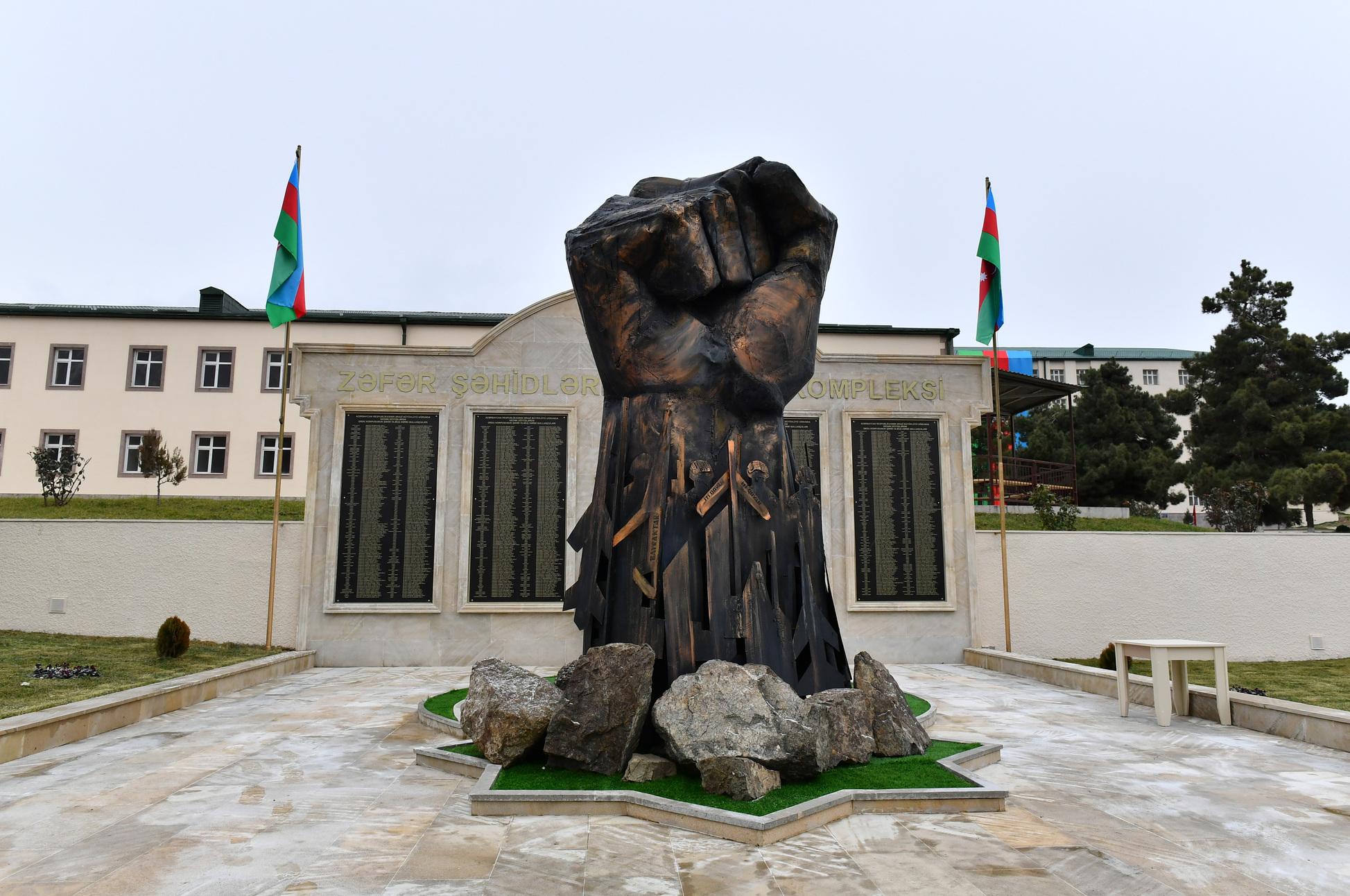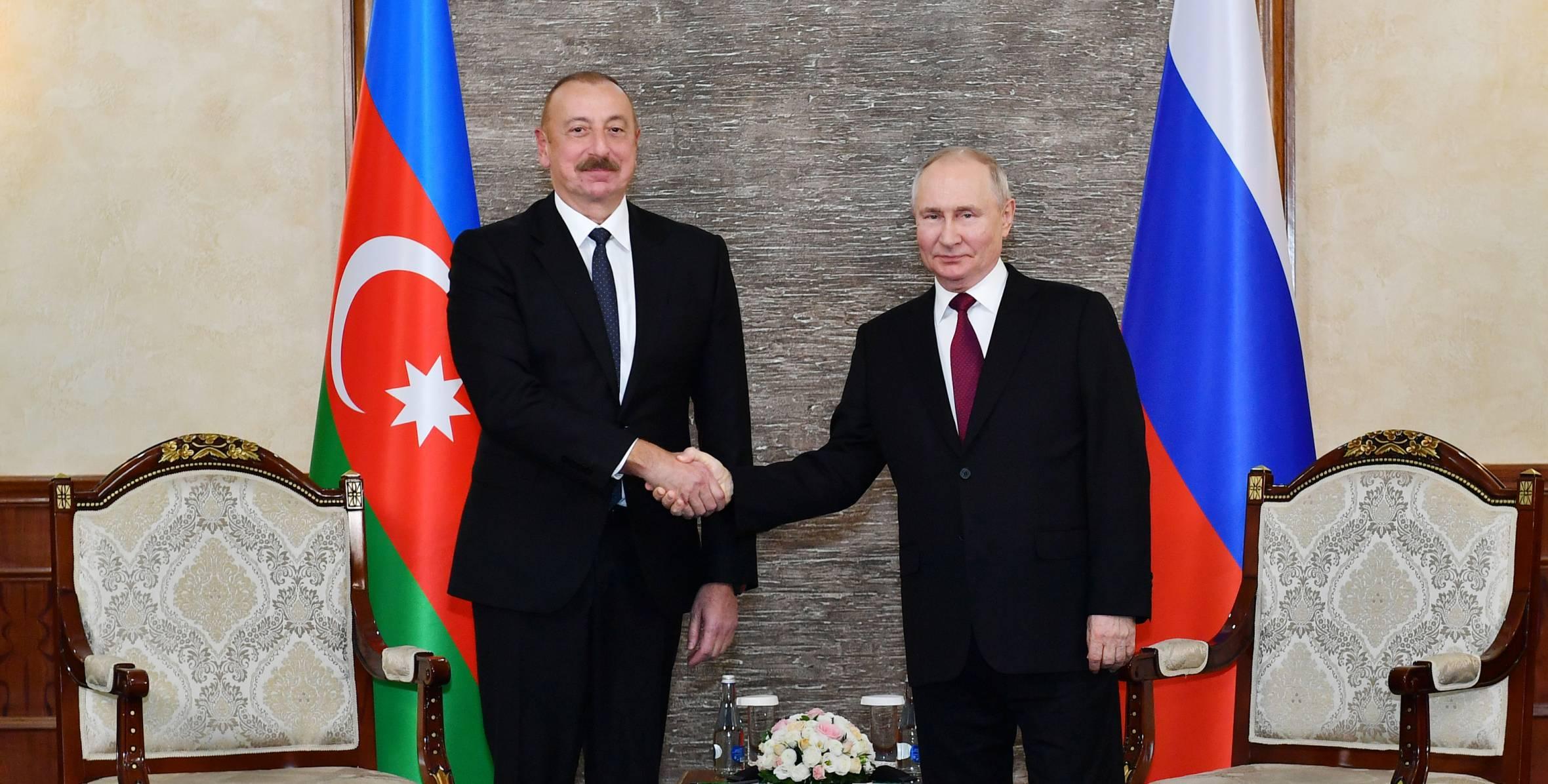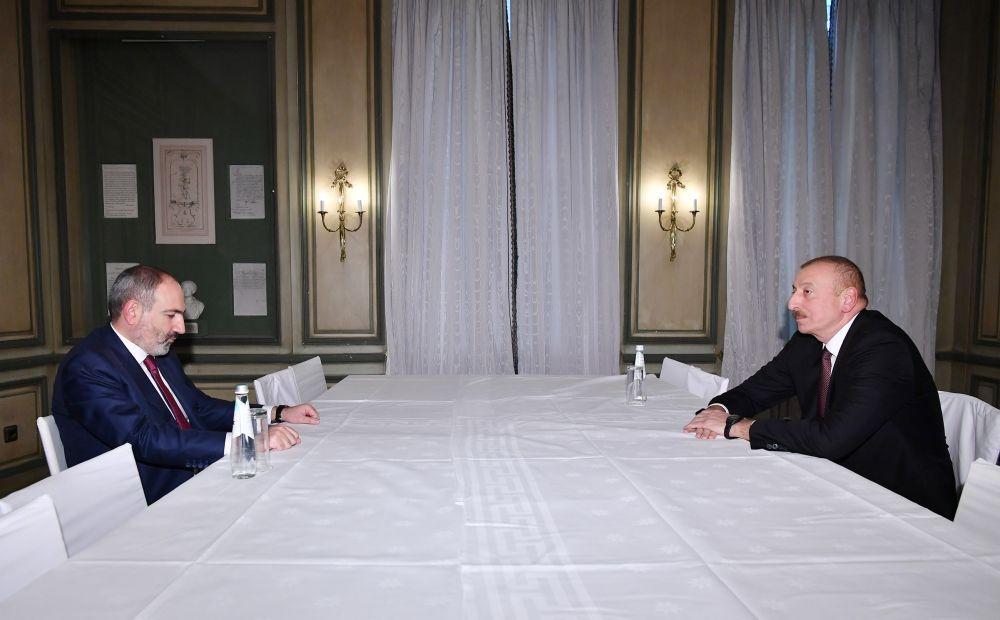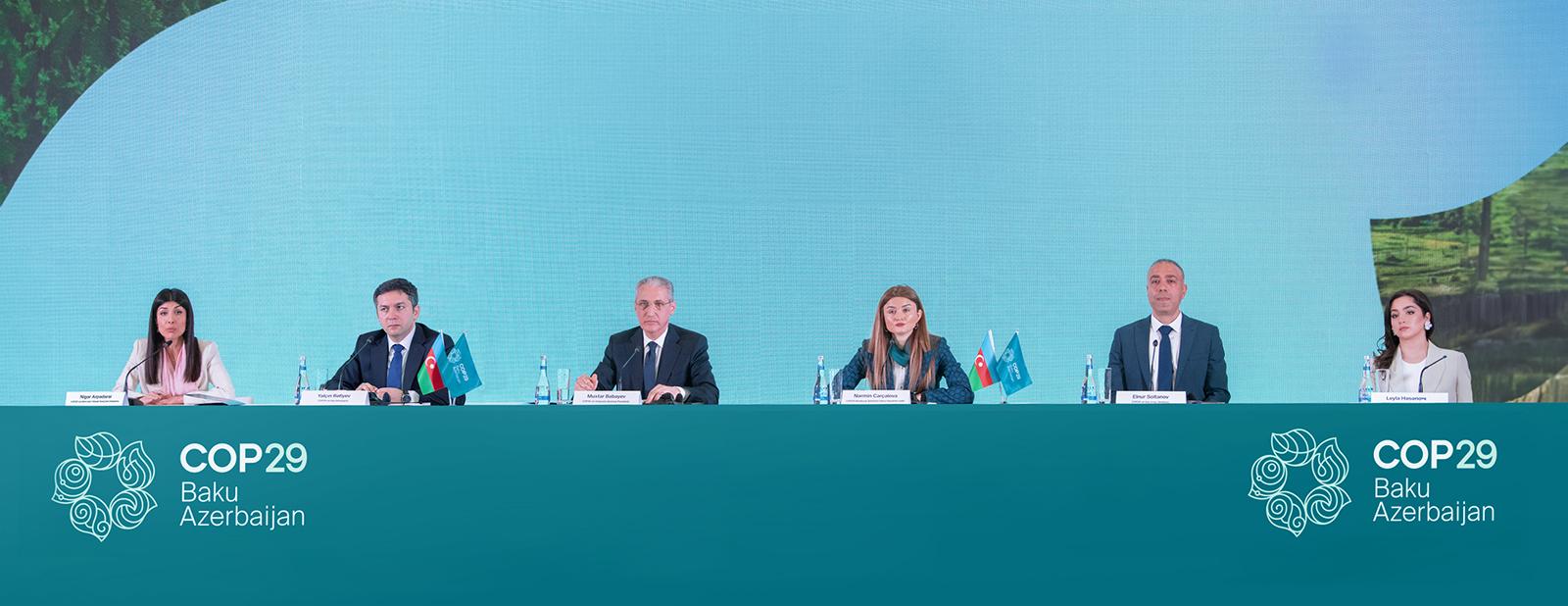New era in the pipeline: Transformative changes in Southern Caucasus A region in transformation
President Ilham Aliyev of Azerbaijan highlighted the significant historic and geopolitical changes occurring in the Southern Caucasus, emphasizing the region's transformation during his address at the second Shusha Global Media Forum themed “Unmasking False Narratives: Confronting Disinformation”. He described the current period as a phase where traditional alliances are deteriorating while new formats of cooperation are emerging.
Full restoration of sovereignty
A pivotal moment in this transformation was the full restoration of Azerbaijan's sovereignty last September. President Aliyev underscored this event as a key milestone not only between the first and second forums but also in Azerbaijan's modern history. This restoration has had profound implications for the region, altering the dynamics and paving the way for new opportunities and challenges.
“As far as the region of the Southern Caucasus is concerned, I would say that we are now facing a historical transformation where significant geopolitical changes are occurring,” President Ilham Aliyev said.
President Aliyev addressed the persistent challenge of disinformation, noting, “false information, disinformation, manipulation of facts, and false narratives are all things we have faced for many years”.

He pointed out that the international media's portrayal of Azerbaijan has often been distorted due to various reasons, including the conflict with Armenia and the efforts of the Armenian diaspora and pro-Armenian politicians to discredit Azerbaijan. Aliyev expressed surprise when accurate information about Azerbaijan occasionally appears in international media.
In his speech, President Aliyev expressed a preference for objective media coverage of events in Azerbaijan and its neighborhood. He acknowledged that while some misinformation might be inadvertent, deliberate media attacks aimed at discrediting Azerbaijan's actions raise serious concerns. He noted that over time, there is a growing recognition in Western political circles of Azerbaijan as an equal partner, reflecting a shift towards more balanced perspectives.
Reflecting on Azerbaijan's victory and the end of Karabakh’s occupation, President Aliyev emphasized the importance of not dwelling solely on past achievements. He urged the nation to be proud of their victory but also to focus on the future, avoiding the constant exploitation of historical events as symbols. The president's forward-looking vision underscores the need to build on past successes while striving for continued progress and development.
Relations with Russia & the West
The president underscored the stability and mutual respect characterizing Azerbaijan’s relations with Russia.
“There are simply no issues that need to be resolved in our bilateral relations. We had settled all issues on the basis of mutual understanding and respect even before the signing of the Declaration on Allied Cooperation,” the president said.

Regarding relations with the West, President Ilham Aliyev expressed a preference for objective coverage of events in Azerbaijan and its neighborhood. He acknowledged that while some misinformation might be unintentional, deliberate media attacks aimed at discrediting Azerbaijan raise significant concerns.
Key issues in the Armenia-Azerbaijan agreement
Regarding the peace agreement text, our foreign minister has informed me that approximately 80 to 90 percent has been agreed upon. Armenia has withdrawn its reservations and terminology related to Nagorno-Karabakh, facilitating normalization. However, two critical issues remain.
First, Armenia must positively respond to our proposal for a joint application to the OSCE to dissolve the Minsk Group, which has been dysfunctional for many months. The group’s co-chairs are essentially at odds, with two against one, and France has lost its role as a mediator in the Southern Caucasus, unable to operate in the region without our consent.
Second, Armenia's constitution must be amended. The current constitution references the Declaration of Independence, posing a territorial threat to Azerbaijan by suggesting the unification of Nagorno-Karabakh with Armenia. Until this is resolved, a peace agreement is unattainable, as a constitution supersedes any international treaty.
These steps are crucial for lasting peace, reflecting Armenia's genuine commitment to recognizing Karabakh as part of Azerbaijan. Transformation and reforms are welcomed, but practical steps must back them. Without addressing these issues, any peace agreement remains fragile.
Addressing the complex path to peace with Armenia, Aliyev reiterated the importance of not harboring territorial claims in a peace agreement.
“We would prefer coverage of events in our country and in the neighborhood to be objective,” he stated, emphasizing the need for mutual trust and understanding. He noted that restoring trust between the peoples after a peace agreement is the most challenging task, but essential for lasting peace.
“Dialogue at the level of experts is possible, but there are also ordinary people who cannot forget what happened to them. This pain will subside over generations,” he added.
Highlighting Azerbaijan’s economic strategy, President Aliyev stated that “we’ve chosen the way of independence, de facto and de jure, independent foreign policy, self-sufficient economies, and fruitful cooperation with partners willing to collaborate with us”.
He credited strong regional ties and reliance on domestic resources for overcoming economic challenges. The president emphasized Azerbaijan’s focus on internal development and disregard for external criticisms, particularly from entities like the European Parliament or the Council of Europe.
Reflecting on Azerbaijan’s role in the Non-Aligned Movement, Aliyev expressed commitment to addressing colonial legacies.
“We started actively addressing this issue after being elected chair of the Non-Aligned Movement. Many countries in the movement suffered from colonialism in the past and continue to face its impacts,” he said.
Aliyev highlighted Azerbaijan’s efforts to assist countries still under colonial rule, such as the Comoro Islands and Mayotte, in overcoming these historical injustices.
Reflecting on Azerbaijan’s liberation of Karabakh, Aliyev emphasized the long-term perspective needed for national achievements.
“Sometimes you have to make difficult decisions. Even if it took 17 more years, it was about the people, the country, and dignity,” he stated. He highlighted the importance of patience and strategic decision-making in achieving national goals.

Aliyev expressed gratitude for the support from Pakistani media and proposed establishing a joint media working group to strengthen mutual support.
“We always feel brotherly support from Pakistani media. Uniting efforts in this area is a good idea, and we should extend this cooperation to other friendly countries,” he suggested.
In conclusion, President Aliyev’s addresses at the Shusha Global Media Forum highlighted Azerbaijan’s dynamic transformation, strategic initiatives in combating disinformation, regional cooperation, and efforts towards sustainable economic and political development.
COP29 team efficient
Aliyev praised the efficiency of Azerbaijan’s COP Team in managing fossil fuel resources.
“A fair distribution of wealth from fossil fuel sales is essential. Our COP Team is working very efficiently, attending numerous international meetings and pursuing a clear, predictable, and result-oriented agenda,” he stated.
He emphasized the importance of building bridges between the Global South and Global North, leveraging Azerbaijan’s leadership in the Non-Aligned Movement.

Relations with the USA
Discussing relations with the United States, Aliyev noted more productive interactions with the Republican administration.
“During President Trump’s presidency, we enjoyed very fruitful cooperation based on mutual respect,” he said. He acknowledged the stability in relations despite occasional tensions and expressed hope for more understanding in Washington and Europe regarding Azerbaijan’s role and potential.
President Aliyev reflected on the difficult decisions he had to make for peace and territorial liberation.
“I met with Armenian leaders, including those involved in war crimes against Azerbaijanis, for the sake of peace and our territory’s liberation. As president, I had to set aside my feelings and emotions,” he shared. He underscored the importance of maintaining a focus on national interests over personal emotions in leadership roles.
Aliyev announced Azerbaijan’s ambitious goal to double its gas exports to Europe by 2027. “Our target is to double the supply of Azerbaijani gas to Europe. We are moving towards that direction,” he said. He detailed plans for increased gas production and export through the Southern Gas Corridor, highlighting Azerbaijan’s significant role in Europe’s energy security.
Strengthening ties with Africa
President Aliyev discussed Azerbaijan’s efforts to enhance cooperation with African nations.
“We are very actively trying to activate our cooperation with members of the African Union. Our chairmanship in the Non-Aligned Movement has facilitated practical contacts,” he noted, adding that the establishment of an Azerbaijani embassy in the African Union and ongoing efforts to build robust diplomatic and economic ties with African countries.








